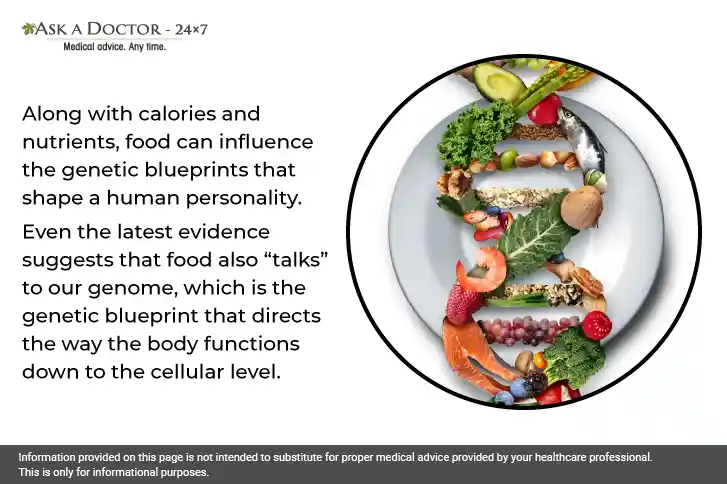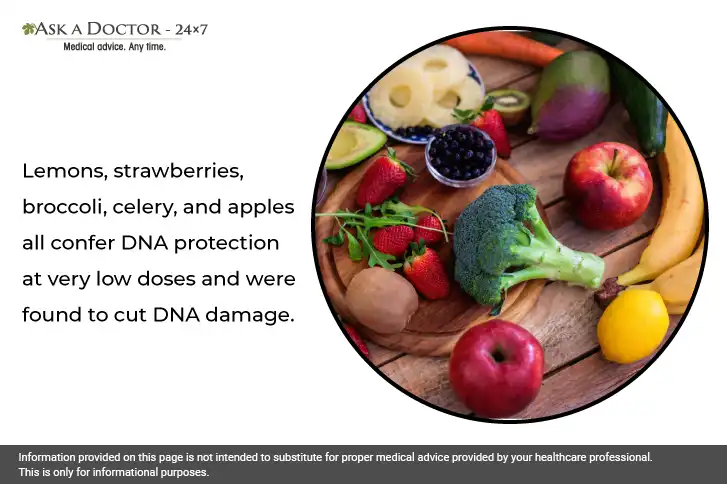Nutrigenomics: Learn How Your Genes Affect Your Eating Habits
Nutrigenomics helps us understand how our genes influence our body's response to food. It's the science behind the concept of "personalized nutrition." Just as your DNA determines your eye color and height, it also affects how your body processes nutrients, metabolizes food, and responds to different dietary patterns.
How Your Genes Affect Your Eating Habits

Nutrigenomics, the study of how genes interact with nutrients, is a burgeoning field that offers personalized insights into health and well-being. By analyzing an individual's DNA, scientists can identify genetic variations that influence how the body metabolizes nutrients, absorbs them, and responds to dietary factors. These genetic markers can provide valuable information about an individual's predisposition to certain diseases and nutritional needs.
For instance, some people may possess genetic variants that make them more sensitive to salt, while others might have a higher risk of developing heart disease due to genetic factors. Aware of this knowledge, individuals can make informed dietary choices to mitigate these risks. By tailoring their diets to their unique genetic makeup, they can optimize their nutrient intake, support overall health, and can potentially reduce their susceptibility to chronic diseases.
The Benefits of Nutrigenomics
Nutrigenomics offers personalized health benefits. By analyzing your DNA, you can develop a diet tailored to your unique needs, identify and address potential health risks, create effective weight loss plans, and optimize your athletic performance.
The DNA Diet: Fact or Fiction?
DNA diet offers personalized insights, but it's not the only factor. While genetics can provide valuable information, lifestyle, environment, and overall diet also significantly impact health. Overemphasizing genetics can lead to a distorted understanding of nutrition.
Think of a DNA-based diet as a starting point, not a strict rulebook. It's best to team-up with a nutrition expert to make sense of your genetic data and design a diet that's just right for you.
Ways to Reprogram Your Genes By Eating Right

Key Nutrients and Their Potential Effects
- Omega-3 Fatty Acids: In fatty fish, flaxseeds, and chia seeds, omega-3s have been linked to reduced inflammation and improved cognitive function. They may also play a role in gene expression related to heart health and mood.
- Antioxidants: Fruits, vegetables, and whole grains are rich in antioxidants like vitamins C, E, and beta-carotene. These compounds can help protect cells from damage and may influence gene expression related to aging and disease.
- Fiber: Found in whole grains, fruits, and vegetables, fiber promotes gut health. A healthy gut microbiome has been linked to various aspects of health, including gene expression.
- Methyl-Donating Nutrients: These include folate, vitamin B12, and choline, found in leafy greens, meat, and eggs. They play a crucial role in DNA methylation (a process that can influence gene expression).
- Polyphenols: Present in fruits, vegetables, tea, and coffee, polyphenols have antioxidant properties and may influence gene expression related to inflammation and chronic diseases.
Role of Genes and Diet in Chronic Disease Prevention
The relationship between genes and diet in chronic disease prevention is complex and multifaceted. It is not solely genetic inheritance that dictates one's susceptibility to conditions like heart disease, diabetes, or obesity; rather, it is the interaction between genetic factors and environmental influences, including dietary choices which shape an individual's health.
The Role of Diet
- Gene Expression: Diet can interact with genetic factors to influence gene expression.
- Nutrient Intake: Consuming specific nutrients can activate or suppress genes related to various health conditions.
- Epigenetics: Diet can influence epigenetic modifications, altering gene activity without changing the DNA sequence.
Chronic Diseases and Diet
Diet is a key factor in chronic disease prevention. Consuming excessive amounts of saturated fats, trans fats, and sodium can elevate cholesterol levels and blood pressure, increasing the risk of heart disease. Similarly, a diet laden with processed foods and sugary drinks can contribute to insulin resistance and lead to type 2 diabetes.
Obesity: A major health concern, is often linked to dietary habits. Overindulging in calories, particularly from unhealthy fats, can lead to weight gain and increase the risk of obesity-related conditions like heart disease, diabetes, and certain cancers.
Certain dietary choices can also elevate the risk of cancer. Excessive consumption of red meat and processed meats has been implicated in an increased risk of colon cancer.
Conclusion
Nutrigenomics, a relatively new field of study, explores the intricate relationship between genes and nutrients. By analyzing an individual's genetic makeup, nutrigenomics can offer personalized nutritional guidance tailored to their needs. This customized approach can provide valuable insights into disease risk, nutrient optimization, weight management, and athletic performance.
To know more about Nutrigenomics or DNA diet and get a personalized guidance you can Ask a Nutritionist online any time, from anywhere at Ask a Doctor 24x7.
Recently Answered Queries Related to Nutrigenomics or DNA Diet
- Supplements To Increase Absorption Of Nutrients. Is Taurine Safe At Stage III Kidney Disease?
- Suggest Anti-inflammatory Nutrients For Mixed Connective Tissue Disease
- Suggest Treatment For Loss Of Appetite And Tiredness
- Should Whey Protein Be Used To Lose Weight?
- Elevated Uric Acid Levels. Is It Advisable To Take Formula 1 Shake And Personalized Protein Powder From Herbalife?
Disclaimer: Information provided on this page is not intended to substitute for proper medical advice provided by your healthcare professional. This is only for informational purposes.
Ask a Specialist
Recent Questions

.jpg)
